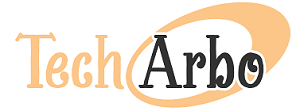
Hospital medical billing software saves personnel time in the complex world of healthcare operations. As hospitals handle patient care, administrative activities, and finances, strong billing software improves operations, allowing doctors to focus on quality treatment. This article discusses the many reasons hospitalist medical billing services saves healthcare staff time.
Automated Processes
Manual billing systems waste time and resources. Automating data entry and claim submission reduces manual involvement in hospital medical billing software. Staff may focus on patient care and clinical decision-making by automating patient registration, coding, and claim creation.
Efficient Documentation
Healthcare requires efficient documentation to keep patient records correct and meet regulatory criteria. Templates, prompts, and checklists in hospital medical billing software help personnel document efficiently. Healthcare workers may swiftly gather patient information, diagnosis codes, and treatment details with improved documentation procedures, reducing errors and administrative time.
Real-Time Eligibility Verification
Verifying patient insurance eligibility is essential to the billing process, but it takes time when done manually. Hospital medical billing software communicates with insurance systems to verify eligibility and detect difficulties in real time. Staff can speed up billing and claim submission by automating this procedure, improving hospital cash flow and reimbursement.
Claims Management
Management of insurance claims is complicated and time-sensitive in medical billing. Hospital medical billing software electronically submits claims to payers, tracks their status in real time, and quickly identifies claim rejections and denials. The software’s built-in claim scrubbing can discover flaws or inconsistencies in claims before submission, decreasing rejections and staff intervention.
EHR Integration
Eliminating duplicate data entry and enabling smooth patient data transfer between medical billing software and EHR systems improves workflow efficiency. Staff can access patient demographics, medical histories, and treatment records from the EHR in the billing software interface, avoiding the need to navigate between programs. This integration saves time, increases data accuracy, and coordinates patient care.
Analytics and Reporting
Hospital medical billing software provides personnel with insights into important performance metrics, revenue trends, and reimbursement patterns. Staff may increase billing efficiency, revenue cycle management, and identification by creating personalized reports and dashboards. These analytical tools help healthcare firms make data-driven decisions to improve operations and finances.
Compliance and Audit Support
Hospitals must comply with healthcare standards and audits to avoid penalties and maintain financial integrity. Hospital medical billing software has compliance checks and audit trails to help staff follow billing rules. The program automatically applies coding rules, charge schedules, and billing procedures, reducing compliance violations and streamlining the audit process, saving regulatory compliance staff time.
Conclusion
Overall, hospital medical billing software is a transformational tool that saves healthcare workers time. Billing software helps healthcare businesses improve revenue cycle management, operational efficiency, and patient care by automating processes, streamlining documentation, connecting with EHR systems, and offering sophisticated analytics. Hospitals must invest in innovative billing solutions to survive in a complicated and competitive healthcare industry.
